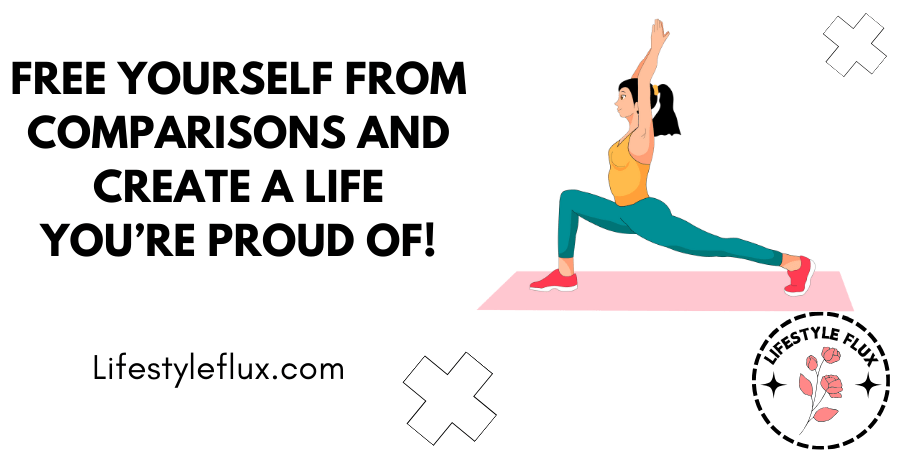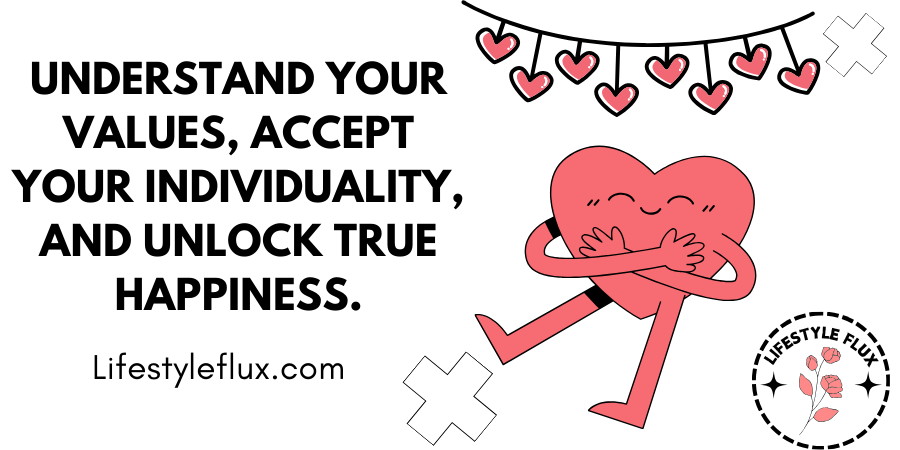Happiness isn’t as elusive as it seems. While life’s ups and downs can leave you feeling stuck in a loop, there are simple, practical ways to shift your mindset and rediscover joy.
In this article, I’ll share seven easy tips to help you feel happier every day, from embracing nature’s beauty to making small yet impactful lifestyle changes.
These tips are not just quick fixes—they’re habits you can build upon to create a life full of positivity and satisfaction. Let’s uncover the little things that can make a big difference in your happiness.
Table of Contents
1. Take Your Breath Away
There are few things more awe-inspiring than the sunrise. Golden beams penetrate a screen of backlit clouds, with vibrant colors decorating an endless horizon. In a few short minutes, the entire world embraces light and life.
Enjoying this breathtaking view can transform your day. Not only will the natural beauty leave you inspired, but you’ll also find yourself more grateful for the gifts life has to offer. Experiencing a sunrise opens your eyes to the complexity of this natural world, which is as uplifting as it is humbling.
Most importantly, the sunrise gives you hope. Every sunrise offers a blank page, a fresh start, and an opportunity to accomplish something new. This freedom will relieve stress and flood your brain with feel-good chemicals, both of which boost your mood.
Daily exposure to sunlight can also work wonders for your mental health. One particular study looked into the mental health risks of living in a country with less sunlight. Researchers found that less Sun increases your risk of developing depression, anxiety, and seasonal affective disorder.

Psychologists started using something called light therapy as a safe way to counteract anxiety and sleep disorders. The light kick-starts hormone production and reset your biological clock. Some psychologists even recommend light exposure as a replacement for antidepressants. The benefits don’t stop there.
Sunlight is critical for your physical health. It supplies you with vitamin D, which promotes cell and bone health. Our body’s supply of vitamin D works a lot like a battery. Once you’re fully charged, your body will keep the rest in storage.
So you can go back and use it anytime. But if you never charge your battery well, your body won’t have enough power. So, how much vitamin D do you need to be fully charged?
Not actually as much as you’d think. By watching the sunrise every morning, you can completely satisfy your daily needs, which means stronger bones, more cell growth, and a lower risk of diseases like
osteoporosis. All you have to do is sit back and take in the view.
2. Cleanse Your Environment
Over the years, you’ve probably collected all kinds of random stuff that poster you don’t remember, why you bought that shirt you keep because it’s a gift even though it doesn’t fit.
There’s nothing really wrong with holding on to a few useless things, but they add up fast. Most people don’t realize how much useless stuff they have in their rooms and offices.
You accrue these things over an extended period of time, so you don’t notice anything wrong until it starts affecting your mental state. We hold onto these trinkets because they mean something to us.
That poster reminds you of the convention you went to with your friends, and that shirt makes you think about Christmas with your family. You don’t want to toss them because it feels like you’re throwing away memories. However, excess clutter is actually one of the most common mental and emotional stressors.
A study from UCLA found that families are significantly more stressed when asked to sort through their possessions, which elevates their production of stress hormones and produces anxiety.
So, do yourself a favor by cleansing your environment. Without clutter, everything in your space will be something you regularly use. You’ll be surprised how big of a difference that simple change can make. Not only will you be more productive and focused, but you’ll also feel better about where you live and where you work.
3. Blacklist Social Media
You’ve probably heard about the benefits of quitting social media to be more productive. You know it’s a notorious time waster, but social media can also impact your mood, whether you realize it or not. It forces you to make social comparisons.
Now, a social comparison is when you judge your own worth based on someone else’s life or accomplishments. Do you have as much money as they do? Is your house as big as theirs? Even if you aren’t directly thinking about these questions, they’re constantly affecting your self-esteem.
The more comparisons you make, the harder it is to understand your own value. It may seem harmless to scroll through someone else’s page or watch their story, but each time, you’re subconsciously pitting your life against theirs.
This is especially detrimental in the morning when you might wake up and immediately check your phone. Maybe you see what your friends did last night or check what your favorite celebrities are up to. Now, on the surface, it’s an easy way to slowly wake up.

But you should never start your day wishing you were someone else, even subconsciously. You’re bound to feel less motivated because you’re excited about a lifestyle that isn’t yours. For people struggling with insecurity, social media can dig them into an even deeper hole.
Your perception of what happiness and success look like becomes that much more skewed. If you want to feel happier every day, cut down on social media or just take a break from it completely.
If you’re used to checking it all the time, then it’s probably going to be tough at first. You might feel restless and uneasy. But it’s crucial that you never use social media as a crutch; instead, use that time to create and embrace a lifestyle that you can be proud of.
4. Anticipate to Motivate
Sometimes, happiness has nothing to do with what you’re doing. It might come from what you’ve planned. Anticipation is a powerful mood booster. Because it gives your daily activities additional meaning.
Imagine you just made plans to go camping with a couple of friends, but the trip isn’t for weeks. Yet, you start feeling excited way in advance. It might even be easier to work and sleep each day because you’re building up towards some sort of reward.
It’s very common for people to experience sadness because of aimlessness. If your life lacks any sort of structure, you might feel empty. Total freedom, while great in theory, can make you confused and purposeless.
Structures and boundaries give you a clear reason to keep moving forward. That’s why something as simple as making plans with a friend can motivate you and improve your mood.
5. Size isn’t Everything.
What if I said you could feel happier and get things done at the same time? You’ve got eight different things on your to-do list for the day. Two of them are big, intimidating projects – or time-consuming but pretty easy, and the last four are simple five-minute chores like cleaning your room or taking out the trash.
Which ones should you do first? Most people would tell you to go with the two big-ticket items. They take more time and brainpower, so why not get them done first thing in the morning?
In an ideal world, this is the way to go. It’s the most productive use of your time and gets the hard stuff out of the way early. In reality, things don’t always go so smoothly. You may have a hard time motivating yourself, or you can’t stop being pessimistic.
Whatever it is, you’re feeling down and uninspired. So, what should you do to pick yourself back up to improve your mood and increase your confidence? Begin with the smallest items on your list, the five-minute chores.
Now, I’ll admit it isn’t the most efficient strategy, but the point here isn’t to maximize productivity. It’s to improve your state of mind. Those small chores give you a much-needed sense of accomplishment. After all, you really are accomplishing something, even if it is pretty small.
This is an especially good strategy for chronic procrastinators. More often than not, procrastination isn’t really a motivation issue—it’s triggered by deficiencies in mood and self-esteem.
For example, you may not be able to motivate yourself because you’re too scared to try, but you can’t expect yourself to jump from zero to a hundred suddenly. Small chores build your confidence bit by bit, acting as stepping stones toward bigger challenges.
6. Expand Your Mind
Undiscovered hobbies give many people a new lease on life. They may have spent their entire lives in one field only to stumble upon their true passion somewhere else.
Even if you don’t turn that passion into a career, a new area of interest can be incredibly fulfilling. Just simply pushing yourself to navigate through uncharted territory boosts your confidence and self-esteem. You’ll find yourself struggling less and less to face challenges because you have faith in your ability to succeed.
That self-assurance doesn’t just make you a better worker. It makes you a happier person. Time and time again, researchers have shown a correlation between self-confidence and general satisfaction.
No matter what you’re interested in learning, it is a surefire way to brighten up your daily life.
7. Study Yourself
You may be struggling to find happiness because you don’t know your own strengths. Many people are so wrapped up in social expectations that they never see themselves as an individual.

They don’t realize what makes them unique. You should set aside some time every day to reflect on who you are, try to understand yourself as a person, dig deep, and analyze your own emotions.
Ask yourself things like what my values are and where they come from. Why do I like the things that I like? You might discover that it’s surprisingly hard to pin down specific answers to these questions.
The truth is most people never stop to reflect on who they are, but those answers are just the beginning. You still have to come to terms with your choices. Once you understand why you do things, you can learn to accept and be happy with your individuality.
Conclusion:
Happiness doesn’t have to be your distant goal. It’s within reach through our small, intentional actions. Incorporating these simple habits, such as enjoying nature, organizing your space, and taking breaks from social media, will help you feel more grounded, motivated, and happy in daily life.
The most important thing is to be consistent, so begin with small changes, and you will see how these can lead to lasting positivity. You should keep in mind that happiness is a journey of our life, not a final goal. By following these tips, you are on the right path to a more fulfilling and joyful life.

Founder and CEO of Lifestyleflux.com, I bring years of expertise in self-improvement, wellness, and personal development to help you lead a happier, more balanced life. Through practical insights, eBooks, and consultations, I share actionable strategies rooted in experience and a passion for empowering others to unlock their full potential.

